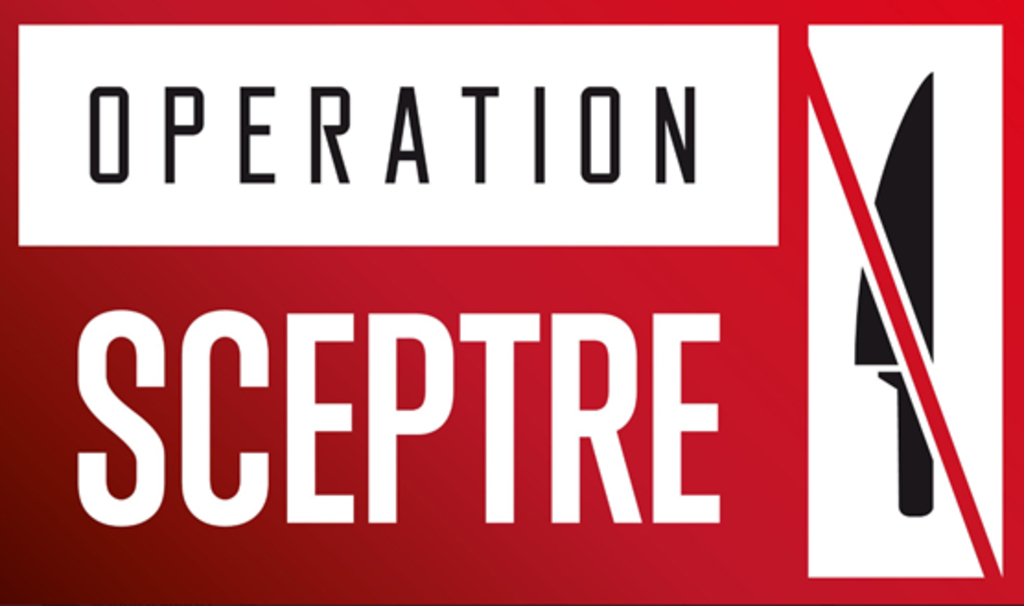
Brian Sims
Editor

Brian Sims
Editor
POLICE FORCES across the country are united in action to tackle knife crime. Operation Sceptre started on Monday 9 November and will see intensified efforts through operations carried out with partner agencies.
As part of these operations, police forces will target habitual knife carriers and engage with children, young people and parents alike to educate them about the risks of carrying a knife and signpost them to relevant support services.
In addition, Operation Sceptre will highlight ongoing work with schools, charities, retailers, the health service and communities that’s all about reducing knife crime and keeping people safe.
Throughout the Coronavirus pandemic, reducing knife crime has remained a top priority for policing at the national level. Operation Sceptre brings together police forces in a co-ordinated national effort to tackle serious violence and will see forces build upon already existing activity that involves crucial engagement and prevention work.
As part of Operation Sceptre, police forces will partner with Border Force nationally to monitor knives and other offensive weapons, including attempts to import illegal items, as well as sharing intelligence.
Knife crime offences
Knife crime offences have been rising since 2013-2014. However, figures issued by the Office for National Statistics (ONS) in October show a 1% decrease in offences involving knives or sharp instruments recorded by the police in the year ending June 2020, predominantly due to the Coronavirus and the lockdown restrictions. However, in recent years increases in knife crime have slowed and the police service will continue to work with law enforcement partners to reduce this further and make communities safer.
Early intervention to steer young people away from knife crime and putting in place measures to tackle the root causes remains vital. The police service continues to work closely with retailers, including those who operate online, and with Trading Standards to devise solutions that will ensure weapons are not falling into the wrong hands. Positive outcomes have been realised from recent work with Ali Baba, eBay and Facebook, all of whom have introduced new measures to restrict the sale of knives to people in the UK (particularly so those under the age of 18).
The National Police Chiefs’ Council’s lead for knife crime, namely Deputy Assistant Commissioner Graham McNulty, said: “Police forces up and down the country work tirelessly in bringing violent offenders involved in knife crime to justice. While the causes and drivers of knife crime are complex, early intervention and putting in place measures to tackle the root causes are absolutely essential.”
McNulty continued: “Policing plays the pivotal role in enforcement activity, but also has a role to play in supporting communities and local agencies to come together in order to prevent knife crime. By working together with our partners, we know that we can be more effective, responsive and. Ultimately. improve people’s lives. Operation Sceptre builds on the work we already do with partners like Border Force and Trading Standards to stop the flow of illegal and dangerous knives that end up in the hands of young people.”
In conclusion, McNulty stated: “This activity forms part of our wider ongoing work with the Government, schools, healthcare and social services and charities to explore what more we can do as a whole society to tackle knife crime.”
Misery and fear
Commenting on Operation Sceptre, Home Secretary Priti Patel stated: “Knife crime causes misery and fear in our communities. This Government will not tolerate it. I’ve backed the police with more powers and resources to bear down on serious violence, and we’re also taking action to stop young people being drawn into criminal activity.”
Patel concluded: “Through the work of the police service, Border Force and other partners, Operation Sceptre is an important part of our collective mission to take dangerous weapons off the streets and keep people safe.”
